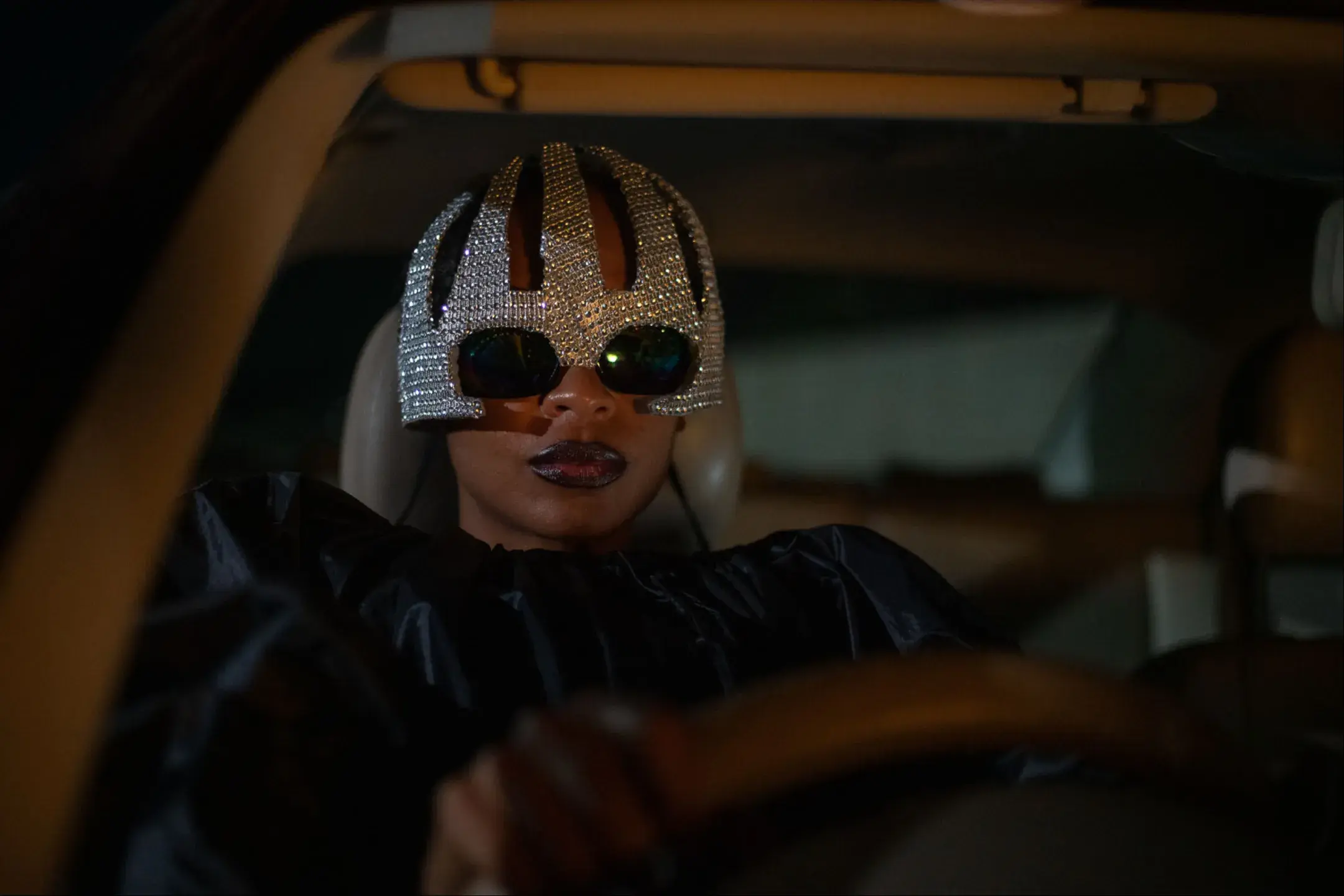Film Review: On Becoming a Guinea Fowl
Film
On Becoming a Guinea Fowl
Director: Runganu Nyoni
Element Pictures, Freemantle, BBC Film
In Theaters: 03.21.25
The Guinea fowl is a common bird in Africa, though they possess a unique quality: When they sense a threat — such as a predator or an unfamiliar presence — they emit a distinctive, high-pitched alarm call that warns the rest of the flock. In Runganu Nyoni’s sophomore feature, On Becoming a Guinea Fowl, the predators are entirely too close for comfort.
As the film opens, Shula (Susan Chardy), a Zambian woman, is driving home from a fancy dress party when she sees something on the side of the road. As it turns out, it’s the dead body of her uncle Fred (Roy Chisha), who was heading in the direction of the local brothel. Shula calls her father, who asks her to wait inside her car until he gets there and to Venmo him some money for a a cab (in general, he seems far more preoccupied with money than the situation at hand). As the family prepares for a traditional funeral, Shula and her cousins, the alcoholic Nsansa (Elizabeth Chisela) and young Bupe (Esther Singini), go about their expected family duties and preparations, yet they are drawn together by their own memories of experiences with their uncle. Meanwhile, Fred’s widow (Norah Mwansa), a young woman joined to him by arranged marriage, faces intense hostility and shame from the elders of the family, who assert that she wasn’t fulfilling her wifely duties of keeping him well-fed and happy — and thus she is responsible for him being out late at night,wandering and looking for attention. As the funeral nears, memories that have remained buried for some time are just now returning the surface, and they are far from pleasant. Shula and her cousins speak to each other openly for the first time about the trauma that they endured at the hands of the man whose memory they are expected to honor, and about what, if anything, was ever done to to prevent these unspeakable things from happening.
It’s fitting that on On Becoming a Guinea Fowl begins with a road accident, because it’s a film that is often deeply disturbing and unpleasant, yet it becomes difficult to look away. The clash between modernity and tradition — and the frankness of a patriarchal society that demands unquestioning loyalty to upholding family pride at the expense of the safety and happiness of the family’s most vulnerable members — is profound, mesmerizing and haunting. There’s a dark, cynical humor pervading the the first third of the film, but as the story progresses it becomes increasingly clear that this is a defense mechanism, not only for the characters, but for an audience that needs to be eased into the harshness of the story. It’s largely female-driven, with the most sympathetic male figures being ineffectual mooches and the worst being genuinely cruel. Perhaps more unsettling than these men, and weighing more heavily on Shula’s mind, is the women of the family who enabled their actions and looked the other way, though she’s careful not to judge anyone too harshly as she questions whether or not she was one of them herself.
The cast of unknowns and first-time actors bring a captivatingly real quality to the characters, with Chardy bringing a powerhouse presence to Shula. Chisela’s abrasive and at times off-putting Nsana is uncomfortably believable, so deeply affected by her past traumas that running from them, denying and making light of them and, above all, numbing the pain has come to define her entire personality. Singini’s very young yet surprisingly strong Bupe is all the more interesting for how little we get to know her, yet she sticks with you long after the film is over. The film wrests firmly on Chardy, however, who carries it with incredible grace.
On Becoming a Guinea Fowl is a disturbing, troubling and mesmerizing indictment of patriarchal society, questioning how things ever got this way in the first place, and why passive acceptance has allowed it to take hold — to the point that its deep roots often seem impossible to cut down. It’s not a pleasant film, but it’s a daring, powerful and brilliantly executed one, with an urgent and timeless message. —Patrick Gibbs
Read more film reviews here:
Film Review: Snow White
Film Review: The Day the Earth Blew Up: A Looney Tunes Movie

